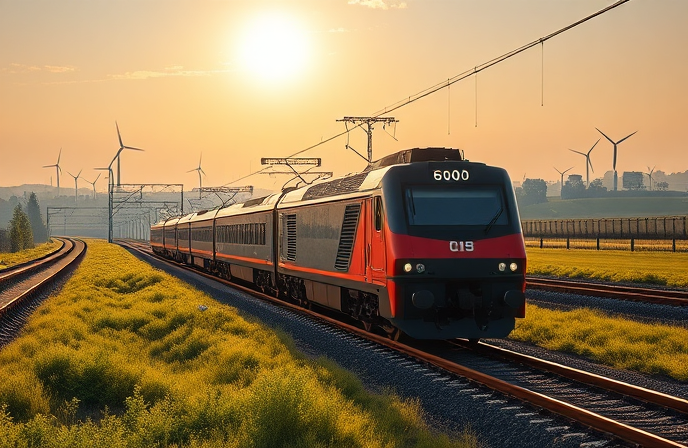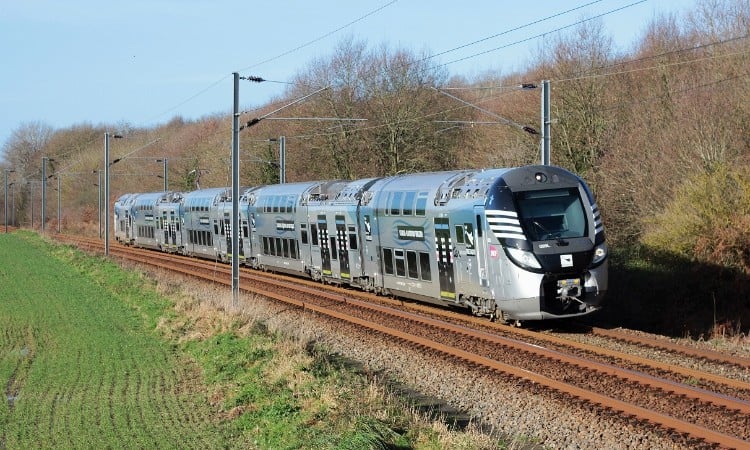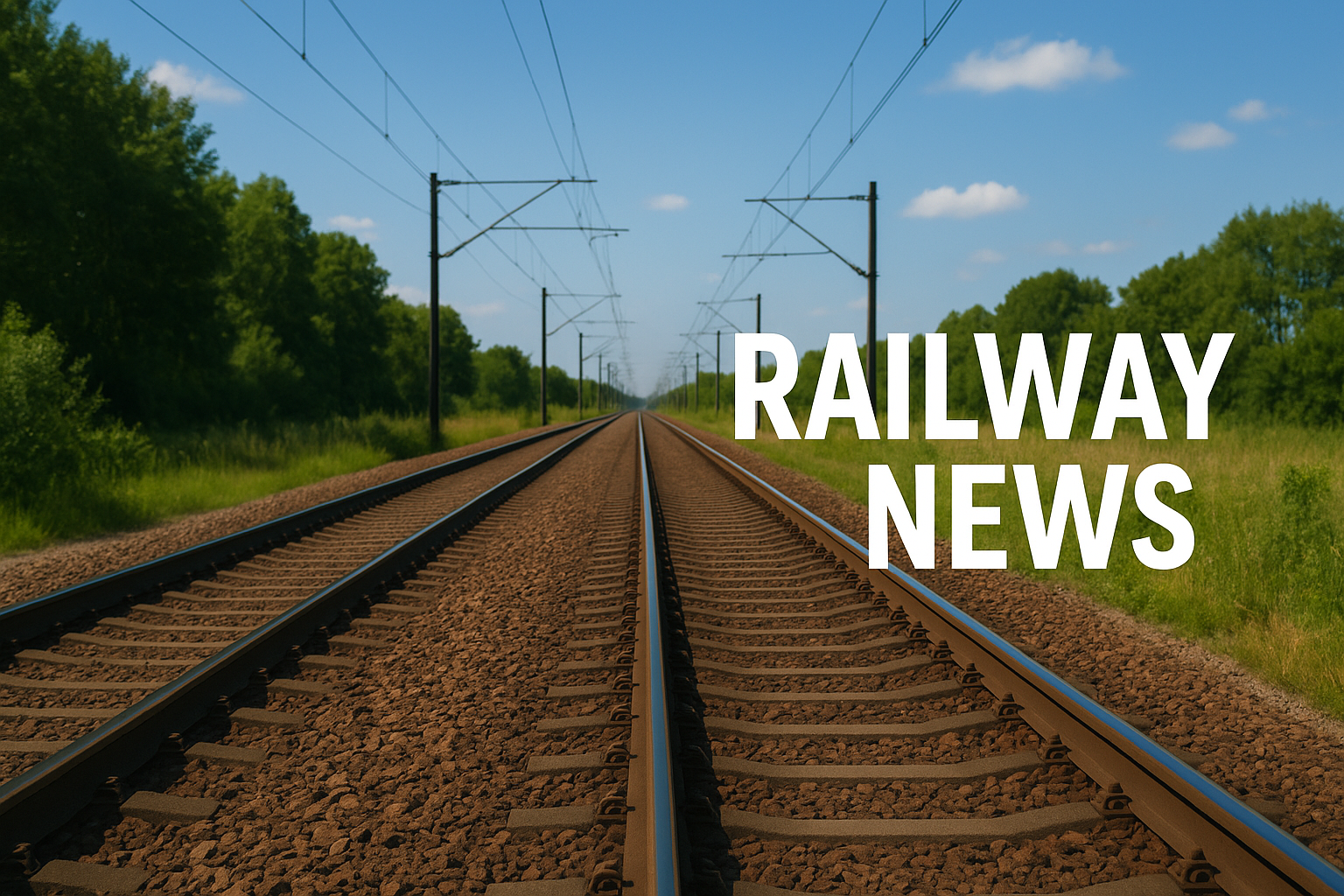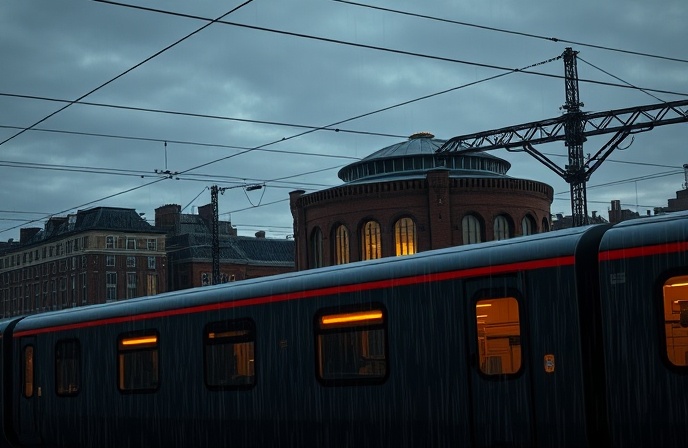Stadler Produces 28 Regional Trains for WestfalenBahn

Stadler Pankow GmbH is producing a total of 28 regional trains on behalf of Alpha Trains. As of December 2015, 15 FLIRT trains will be operating the Emsland line and 13 KISS trains will be running the Mittelland line for WestfalenBahn. With the contracts officially signed, this was announced by the companies today in front of journalists in Osnabrück. WestfalenBahn won two European tenders in 2012 and secured a 15-year transport contract from the Landesnahverkehrsgesellschaft Niedersachsen (LNVG) and its partners.
“The modern KISS electric double-decker multiple-unit trains are to be used in Lower Saxony for the first time,” explains Michael Daum, Director of Stadler Pankow GmbH, who also points out that Stadler FLIRT multiple-unit trains have been successfully used in North Rhein-Westphalia since 2007. “We are pleased to be able to produce more FLIRT and KISS trains for Alpha Trains and WestfalenBahn, and this order extends our previous commitment to modern, environmentally friendly public transport. What sets the trains apart is their efficient energy extraction and recovery levels of over 20%.”
“We are pleased that we – in conjunction with Stadler and our partner banks – have succeeded in providing WestfalenBahn with a competitive offer to support them in their newly acquired Emsland and Mittelland services,” explains Shaun Mills, Chief Executive Officer of Alpha Trains. He goes on to say that “with the purchase of modern Stadler rail vehicles and the takeover of the entire residual risk by Alpha Trains, WestfalenBahn has the flexibility it needs to react dynamically and yet economically to fast developments in the regional rail market.”
“The new multiple-unit trains replace the current red double-decker trains with locomotives and will offer our customers more space, comfort and safety,” adds Rainer Blüm, Managing Director of WestfalenBahn. “Mobility-impaired people and cyclists can benefit from the fact that the entrances are largely barrier-free and there are many carriage areas which can be accessed without steps. There will be large information screens to keep passengers better informed. All the carriages will also be fitted with video surveillance systems.”
“The best way to get ahead of the competition in regional rail services is to use modern, comfortable trains,” explains LNVG Managing Director Hans-Joachim Menn, pointing out that the LNVG often provides the winning bidders with new vehicles from their vehicle pool. But this is not always possible for larger railway networks, especially those crossing national borders. Menn, whose company spends nearly EUR 300 million annually on the order of the local transport trains between the Ems and the Elbe, emphasised that, against this backdrop, it was important that three capable partners shouldered the financing, procurement and production of the new trains together.
The 15 single-decker four-carriage FLIRT electric railcars have been designed specially for the Emsland line (RE 15) from Münster to Emden via Rheine, Lingen and Leer. The railcars can be coupled easily and the capacity thus quickly adapted to fluctuating demand. One or two railcars are operated on a permanent basis, providing up to 430 comfortable seats – including up to 30 in 1st class – up to four toilets and plenty of bicycle spaces – up to 84 in summer and up to 48 in winter. Step-free and therefore barrier-free entry is possible at all modernised stations, including Münster, Emsdetten, Rheine, Leschede, Lingen, Meppen, Haren, Dörpen, Papenburg, Leer, Emden Hbf and Emden Aussenhafen, with sliding steps providing assistance at all other stations.
The 13 double-decker six-carriage KISS railcars are designed for the Mittelland lines RE 60 (Rheine–Osnabrück–Minden–Hannover–Braunschweig) and RE 70 (Bielefeld–Herford–Minden–Hannover–Braunschweig). “The new double-decker trains will allow us to offer high capacities of 626 seats across all trains, including 34 in 1st class,” explains Rainer Blüm. “This means that, for the customers, there are no differences between the two lines or between scheduled and relief trains.” The trains have four toilets and at least 30 bicycle spaces in summer and up to 18 in winter.
All 28 railcars are characterised by their high speed, with maximum speeds of 160 km/h, and low energy consumption. Comfortable seating distances, sockets, air conditioning and all sorts of luggage stowing options all add up to increased passenger comfort. Each of the 28 railcars has multiple toilets, including one designed for persons of restricted mobility in line with the latest regulations.
Source : Stadler Rail PC




